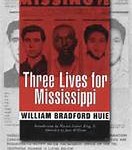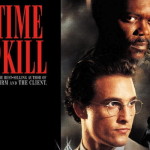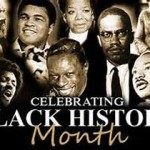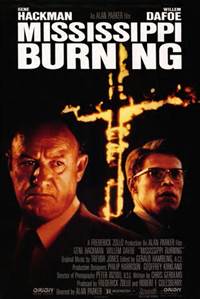Remember the past.
History was and is important in our household.
In addition to civil rights readings and discussions, I showed “Mississippi Burning” to my children when they were both teenagers.
“Mississippi Burning” is the awful accounting of an awful event reawakening Americans to our awful past.
Based on a true story, three young men—two white, one black—were brutally murdered by the Ku Klux Klan in Philadelphia, Mississippi. It was 1964.
 Working for black voting rights in the Deep South, the civil rights activists’ deaths were investigated by the FBI. Three Lives for Mississippi is the fact-filled journalist’s book on which “Mississippi Burning” was based.
Working for black voting rights in the Deep South, the civil rights activists’ deaths were investigated by the FBI. Three Lives for Mississippi is the fact-filled journalist’s book on which “Mississippi Burning” was based.
When the movie ended, my daughter asked the question that haunts me to this day. It is the question that every father should have to answer.
“Daddy, why are people still so upset today about racial issues?” [Tyler and Chelsea attended schools with African-American, Asian-American, Hispanic-American, and Euro-American children. Their lives were full of people whose cultures, histories, and ethnicities were different than their own.]
My response was simple. “Little one, people have long memories.”
I continued, “We must care about peoples’ past lives. We should never forget these events. We should always make sure they never happen again.”
 Visually reminding my high school students about racism, I would show the final courtroom scene of “A Time to Kill.” Toward the end of the movie, Matthew McConaughey’s character asks everyone to close their eyes while he tells the courtroom a story.
Visually reminding my high school students about racism, I would show the final courtroom scene of “A Time to Kill.” Toward the end of the movie, Matthew McConaughey’s character asks everyone to close their eyes while he tells the courtroom a story.
The lawyer recounts the brutal rape of a little black girl—the very crime that propelled Samuel L. Jackson’s character to kill the white men responsible: the point of the movie. Now held for the crime, Jackson’s character too hears the retelling, a father’s heart broken, enraged by the heinous, cowardice act.
Reaching the climax of the story, the lawyer utters those soul stopping words in a Mississippi courtroom: “Now imagine she’s white.”
My eyes filled with tears every time I showed that film clip. I felt the pain as a man, as a father, as a Christian.
Ethnic divides continue to haunt us today. As a Christian, I bear the responsibility of a prophet to announce again and again, “Never forget.”
 “Black History Month” should not be a focus only 28 days out of a year. History is the foundation for Christian thinking about every subject: indeed, history is the basis for the Hebraic-Christian view of life (Lev 19.33-34; Deut 4.9; 1 Co 15.1-3; 2 Pet 1.12-17).
“Black History Month” should not be a focus only 28 days out of a year. History is the foundation for Christian thinking about every subject: indeed, history is the basis for the Hebraic-Christian view of life (Lev 19.33-34; Deut 4.9; 1 Co 15.1-3; 2 Pet 1.12-17).
How can we continue to recall sin and drive the prospects for redemption? Here are questions to consider based on Ephesians 2:
-
Do we encourage open, honest discussions about how Christ’s death on the cross breaks down “the dividing wall of hostility” (2.14)?
-
Are we participating with others in social concerns toward racial reconciliation (2.16)?
-
What part do we play in our communities to offer peace through mutual belief (2.17)?
-
How are we joining together through “one Spirit” to bring resolution (2.18)?
-
How will we make our brothers and sisters “fellow citizens” with us (2.19)?
“Mississippi Burning” is a visual reminder of a past we must never forget.
But Ephesians 2 is a verbal prompt of a present we must always represent.
Dr. Mark Eckel is president of The Comenius Institute. Our new radio program can be heard from 10 a.m. to noon on Wednesdays on www.radionext.tv with Harold HB Bell.


Excellent sir. Thoughtful and rich with theological foundation. Asking the right questions will eventually lead to having the right conversation, which may lead to taking the right action… Christ first, everything else should follow.